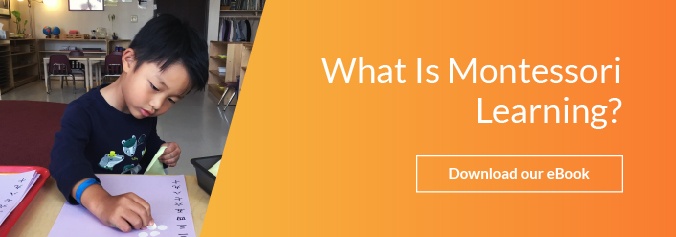The Montessori educational approach is one that is based on self-directed activity, hands-on learning, and collaborative play. In a Montessori classroom, children are free to move about, choose their own activities and work at their own pace.
What is Montessori?
The Montessori method was developed by Italian physician and educator Maria Montessori. Dr. Montessori believed that all children have a natural desire to learn. Therefore, she designed her educational system to allow children to follow their interests and reach their fullest potential. Today, there are over 22,000 Montessori schools in more than 110 countries worldwide. The popularity of the Montessori approach continues to grow as parents seek out educational options that allow their children to thrive academically, socially, and emotionally.
While there are many aspects to Montessori, this article will explore three concepts of Montessori all parents should know: sensitive periods, freedom within limits, and inner discipline.
Sensitive Periods
There are six periods of development in a child’s life from birth to age six called “sensitive periods,” according to Dr. Maria Montessori: order, language, walking, the social aspects of life, small objects, and learning through the senses. Sensitive periods are defined by The Association Montessori International as, “Young children experience transient periods of sensibility, and are intrinsically motivated or urged to activity by specific sensitivities. A child in a sensitive period is believed to exhibit spontaneous concentration when engaged in an activity that matches a particular sensitivity. Young children are naturally drawn towards those specific aspects of the environment which meet their developmental needs. Therefore, a Montessori environment will naturally provide space and activities that encourage development during these six sensitive periods.
Freedom Within Limits
Many people think when they hear the word freedom that this means no limits, doing whatever you desire at that moment. But that is not the Montessori way. In the Montessori method, children are allowed freedom but within limits. What does this mean? In a Montessori learning environment, children are encouraged to explore within carefully set boundaries. The younger the child, the more restrictive the boundaries. As the child learns to treat their environment and the things in it with respect, the boundaries expand.
Inner Discipline
What does it mean for discipline to be inner? Most parents (and schools) operate from the idea of “rewards and punishment.” When a child does something “good” or praiseworthy, you dole out a reward like a sticker or higher place on a chart. If the child exhibits poor behavior, however, an “X” is placed on a chart, or another kind of punishment is handed out. This type of discipline can be effective but typically only produces extrinsically motivated children (motivated by external things).
In contrast, if you forgo the idea of reward and punishment and instead allow for natural consequences and mutual respect, something amazing happens: the child owns their behavior. They become intrinsically motivated (internal motivation). They know they are helping others, so they tidy up. They understand they are responsible for treating the things and people around them with respect and are contributing in that way. They feel a sense of pride in making their world a more peaceful and pleasant place to live. They, in a sense, discipline themselves. This inner discipline creates productive members of society who, as adults, are diligent, unentitled, and respectful.
In conclusion, parents should familiarize themselves with the three Montessori concepts of sensitive periods, freedom within limits, and inner discipline in order to provide their children with the best possible learning environment. With a better understanding of these concepts, parents can help their children thrive in school and in life. If you are interested in learning more about the Montessori method, Fountainhead Montessori can schedule a tour of their facilities for you.












Let us know what you think about this post
Put your Comment Below: